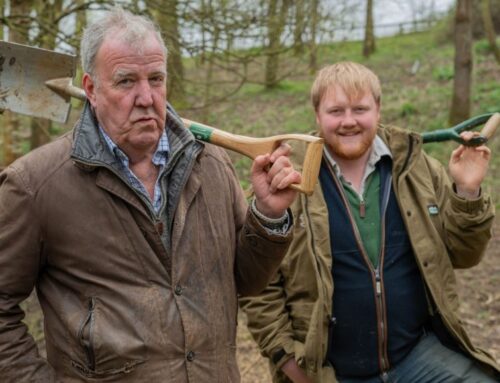More Aussies are concerned the transition to renewables will hurt them financially
July 29, 2024

Support for Australia transitioning to renewable energy is strong across the country (with 59% support), but 41% are concerned about the negative impacts of the transition to green energy on cost-of-living and household energy bills (up 10% since 2022), according to the 2024 Ipsos Climate Change Report, unveiled at Sydney’s Greenhouse Tech Hub.
The Ipsos study provides new insights on Australians’ attitudes towards climate change and the transition to green energy, focusing on priorities and concerns for energy transition, and information and understanding around climate change.
The report found that Australians are concerned about the negative impact of the shift to green energy on cost-of-living, which rose by 10 percentage points since 2022, and household energy bills, up 7 percentage points, plus reliability of energy supply, up 11 percentage points. This is despite almost 6 in 10 (59%) Australians supporting the energy transition away from fossil fuels towards renewable energy generation.
The spike in cost-of-living worries has also changed Australians’ priorities around the energy transition. Most Australians (59%) now want to see energy prices—up 13% since the same time last year—and energy supply reliability to homes and business (57%) prioritized.
Australian skepticism about national climate change action and information is also high. Half of Australians don’t think there are any plans around the energy transition, or that it simply won’t happen, while 54% say they don’t understand the actions being taken around climate change.
Key findings
There is strong support across Australia for energy transition:
- 59% of people support Australia transitioning away from fossil fuels and towards renewable energy generation. Support is very consistent across all demographic groups, but strongest in the inner regional areas (66%) and among Gen Z and Millennials (61%).
There is low understanding and skepticism around progress made to date and Australia’s ability to meet its net zero targets:
- Most Australians believe the transition is not yet underway, while half think there are no plans, or the transition simply won’t happen (combined 50%).
- Australians are far from convinced the nation is on track to meet its 2030 emissions reductions targets—45% think it’s “unlikely.”
Australians are concerned about the negative impacts of the transition to green energy on cost-of-living and household electricity bills:
- 41% believe the transition is likely to have a negative impact on cost-of-living and 37% believe it will negatively affect the affordability of household energy bills.
- Concerns have increased in line with broader concerns about cost-of-living—the figures have increased by 10% since 2022.
Cost of living concerns are shifting priorities for the energy transition:
- Australians now want to see energy prices prioritized (up 13% since the previous research wave), along with network reliability.
- Support for Australia taking a leading role in energy transition has declined over the past two years, with 58% of people thinking that Australia should be a global leader, down from 64% in 2022.
Understanding of the energy transition and the technology involved is poor:
- Just under two thirds of Australians (60%) are confident they understand the causes and impacts of climate change.
- 54% say they don’t understand the actions being taken to meet Australia’s net zero commitments.
Alternative narratives are highly believable:
- Discerning the truth about conflicting opinions is a challenge to close to half of Australians—51% say there are too many conflicting opinions in the public arena.
Contentious statements about the transition are believable at least half of Australians:
- Transitioning to renewable energy will lead to an increase in household energy prices (believable for 68%)
- Electric cars are as bad for the planet as petrol cars (58%)
- Wind farms take more energy to build than they provide to the grid over their lifetime (50%)
- Building more renewable energy generation will lead to more blackouts and brownouts (50%)
- Offshore wind farms cause harm to whales (50%)
- Building more solar and wind farms is taking away our best agricultural land (50%).
Australians want to hear more about the energy transition and see more action:
- A third of Australians (34%) want to see the Australian Government take more action to address climate change.
Stuart Clark, Director, Public Affairs at Ipsos Australia, said, “Most Australians are supportive of the energy transition, but there’s not a strong belief that it’s already underway. The challenge is that the public is generally unaware of the actions being taken and progress already being made towards net zero.
“Australian governments and businesses need to step into the vacuum currently filled with mis- and disinformation, focusing on communicating the positive actions and plans already in the pipeline. People need to understand the plans and the transition needs to feel real.
“The cost-of-living environment is causing many Australians to question the impacts of the energy transition on their households’ finances. And that is reducing the appetite for Australia to take a leading role in the global transition.”
More information:
The Ipsos Climate Change Report. www.ipsos.com/en-au/climate-change-report
Provided by
IPSOS
Citation:
More Aussies are concerned the transition to renewables will hurt them financially (2024, July 29)
retrieved 29 July 2024
from https://phys.org/news/2024-07-aussies-transition-renewables-financially.html
This document is subject to copyright. Apart from any fair dealing for the purpose of private study or research, no
part may be reproduced without the written permission. The content is provided for information purposes only.
Search
RECENT PRESS RELEASES
Related Post


